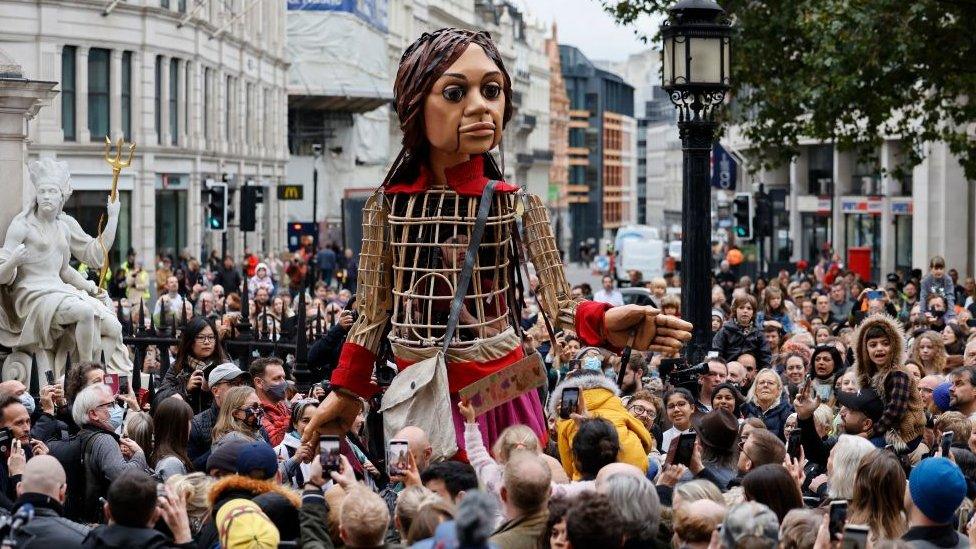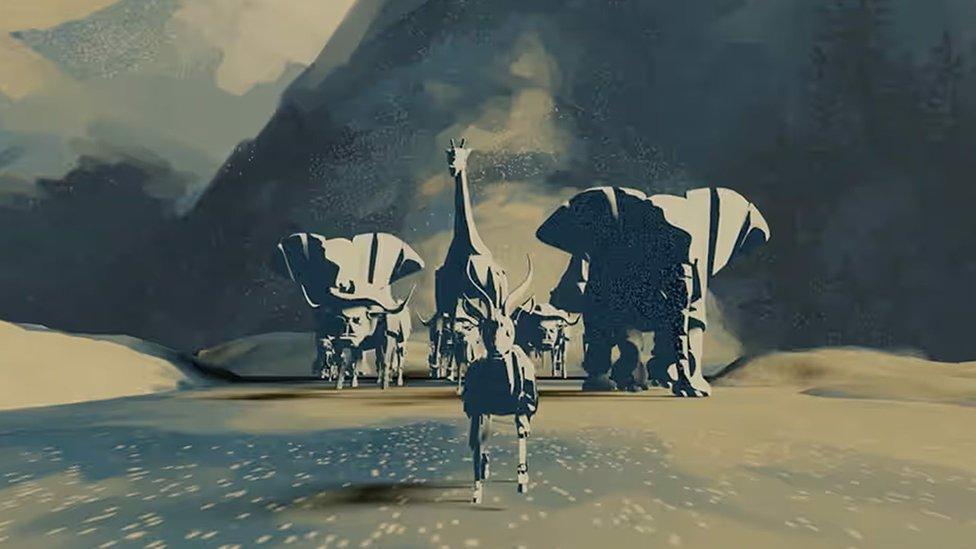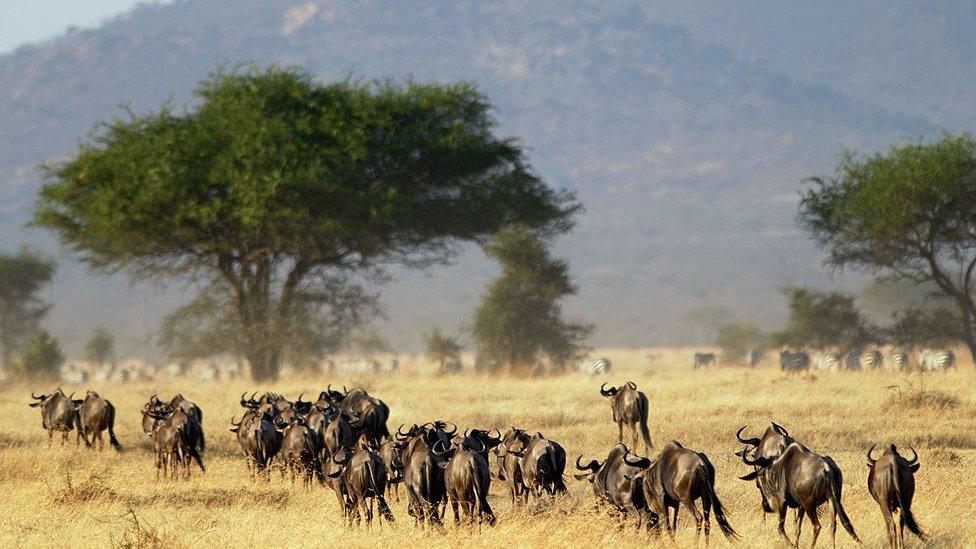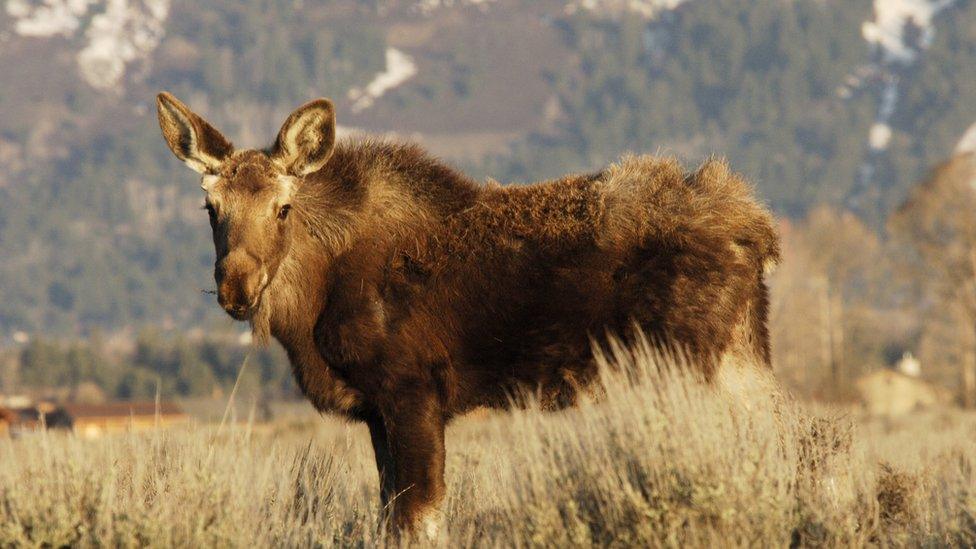Herd of animal puppets to march thousands of miles for climate change
- Published
- comments

Little Amal walked across the world to raise awareness of children who leave their country as refugees
If you want to grab people's attention, go big.
That's what the people behind The Herd are no doubt thinking.
They plan to create giant animal puppets, which they will bring to life as they trek from West Africa to Europe to raise awareness of climate change.
The puppets have been made by the same artist who created Little Amal - a 3.5 metre tall puppet of a Syrian girl.
Little Amal was made to raise awareness of refugees escaping war.
The migrating "herd" will ultimately consist of 12 puppets, including a giant elephant and an enormous giraffe.
The trek starts in West Africa, in spring 2025 and will pick up more puppets on the journey.

The puppets are being created by artist Amir Nizar Zuabi
These large puppets will be controlled by different groups of people.
The artist's previous work, Little Amal, reached millions of people as she headed from Turkey to the UK. Now, The Herd is hoping to reach even more people.

Little Amal walked across the world to raise awareness of children who leave their country as refugees
Artist Amir Nizar Zuabi says he wants to recreate a mass migration of animals, similar to the event that happens in the Serengeti, in Tanzania.
Once a year, millions of wildebeest, zebra, gazelle and impala travel across Tanzania. The wildebeest usually set off first, to have calves, and the other animals follow.

Every year, wildebeest make a dangerous journey across Tanzania, facing threats like lions and cheetahs
The journey is going to be 20,000km long.
We don't have a clear start point yet, but the trek will include Senegal, Morocco, Gibraltar, Spain, France, the UK, the Netherlands, Denmark, Sweden and end in Norway.
The Herd will pick up more animals as it travels to different locations. Amir Nizar Zuabi says the idea is to have an "evolving, growing group of animals".
The artist hopes to raise awareness about climate change, and especially how it is impacting animals all over the world.
Scientists have noticed changes in animal migration patterns because of climate change. As the weather changes, with more extreme temperatures, animals are beginning to move at different times of year.
If you want to learn more about why animals migrate, and how they do it, check out this guide here.
- Published7 May 2021

